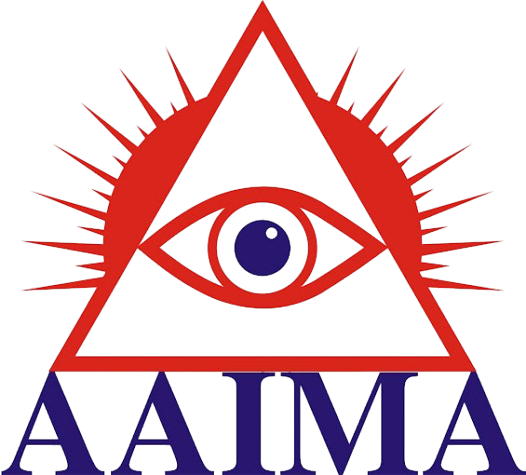What Is Water Treatment?
Water treatment is the process of removing impurities, contaminants, and harmful substances from water to make it safe for its intended use. The treatment process can vary based on the water source (groundwater, surface water, industrial wastewater, etc.) and the desired quality.
Water treatment can be done through physical means (like filtering and sedimentation), chemical processes (like disinfection and pH correction), or biological methods (using microorganisms to break down organic waste).
1. Physical Water Treatment
Physical treatment involves removing physical impurities from water using mechanical or manual processes. It does not involve any chemical reactions or biological activity.
How It Works:
- Screening: Removal of large objects like leaves, plastic, and other debris.
- Sedimentation: Allowing heavy particles to settle at the bottom of tanks due to gravity.
- Filtration: Passing water through layers of sand, gravel, or membranes to remove suspended solids and turbidity.
- Reverse Osmosis (RO): A membrane-based physical process to remove dissolved salts and impurities from water.
Applications:
- Pre-treatment in industrial water systems
- Mineral water plant purification
- Systems for filtering water in homes and businesses
Advantages:
- Simple and effective for removing visible impurities
- No use of chemicals
- Low maintenance cost for basic systems
Limitations:
- Cannot remove dissolved gases or microscopic bacteria and viruses
- Often needs to be combined with chemical or biological methods for complete treatment
2. Chemical Water Treatment
Chemical water treatment uses various chemicals to eliminate contaminants, neutralize pH, or disinfect water to make it safe for consumption or discharge.
How It Works:
- Coagulation and Flocculation: Chemicals like alum or ferric chloride are added to water to bind fine particles into larger clumps, which can be easily removed.
- Disinfection: Chlorine, ozone, or hydrogen peroxide is added to kill bacteria, viruses, and other microorganisms.
- Softening: Chemicals are used to remove calcium and magnesium ions, which cause water hardness.
- pH Control: Acids or alkalis are added to balance the pH of the water.
Applications:
- Drinking water treatment plants
- Swimming pool maintenance
- Industrial cooling systems
- Effluent treatment in industries
Advantages:
- Highly effective in killing harmful pathogens
- Can remove a wide range of dissolved contaminants
- Fast-acting and scalable for large volumes of water
Limitations:
- Chemical residues may remain in the treated water
- Requires careful handling and monitoring
- Higher operational cost due to continuous chemical supply
3. Biological Water Treatment
Biological water treatment uses naturally occurring microorganisms to break down organic matter in water. It is especially effective in treating sewage and industrial wastewater with high biological content.
How It Works:
- Aerobic Treatment: Microbes use oxygen to decompose organic pollutants.
- Anaerobic Treatment: In the absence of oxygen, microbes break down waste and produce biogas as a byproduct.
- Activated Sludge Process: Wastewater is mixed with bacteria-rich sludge and aerated, allowing microbes to consume organic pollutants.
- Bio-filtration: Water passes through a filter medium containing microbial colonies that treat the water as it flows through.
Applications:
- Sewage treatment plants
- Wastewater treatment plants in Ahmedabad and other cities
- Food processing, textile, and chemical industries
- Septic systems in residential and commercial buildings
Advantages:
- Environmentally friendly and sustainable
- Effective for high-organic-load wastewater
- Can reduce environmental pollution significantly
Limitations:
- Requires specific conditions such as temperature, oxygen levels, and pH
- Takes longer compared to chemical treatment
- Requires regular monitoring and maintenance
Choosing the Right Treatment Method
Selecting the correct water treatment method depends on several factors:
- Water Source: Groundwater may need filtration and softening; surface water may require disinfection.
- Water Quality: High levels of organic pollutants may require biological treatment.
- Usage Purpose: Drinking water requires chemical disinfection; industrial use may need multi-stage treatment.
- Budget and Space: Physical methods are usually cost-effective; chemical and biological methods may need more investment.
For example, if you’re setting up a mineral water plant, a combination of physical filtration (RO) and chemical disinfection is ideal. For industrial effluent management, especially in textile or food industries, biological treatment is essential followed by chemical polishing.
Water Treatment in Ahmedabad and Across India
Ahmedabad is one of the major industrial hubs in India. The demand for quality water treatment solutions is growing rapidly. Whether you’re looking for a wastewater treatment plant manufacturers in Ahmedabad, planning a mineral water plant, or sourcing from top water treatment plant manufacturers in India, make sure your solution provider offers:
- Custom-designed systems based on your water report
- End-to-end support including installation, maintenance, and AMC
- adherence to governmental regulations and pollution control guidelines
- Use of high-quality components like RO membranes, dosing pumps, filters, and control panels
Conclusion
Understanding the differences between physical, chemical, and biological water treatment is key to choosing the right system for your needs. Each method has its strengths, and in many cases, they are used in combination to ensure complete purification.
Whether you need clean drinking water, are managing industrial wastewater, or are planning to set up a water filtration plant in Ahmedabad, choosing the right treatment process will save you cost, time, and ensure long-term environmental safety.
For high-quality, reliable solutions, work with trusted water treatment plant manufacturers in Ahmedabad who can guide you with the right technology and ongoing support.

